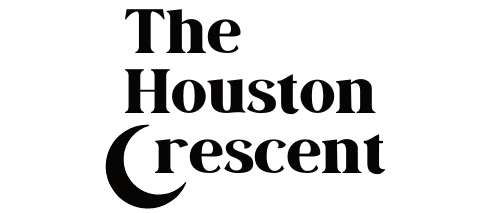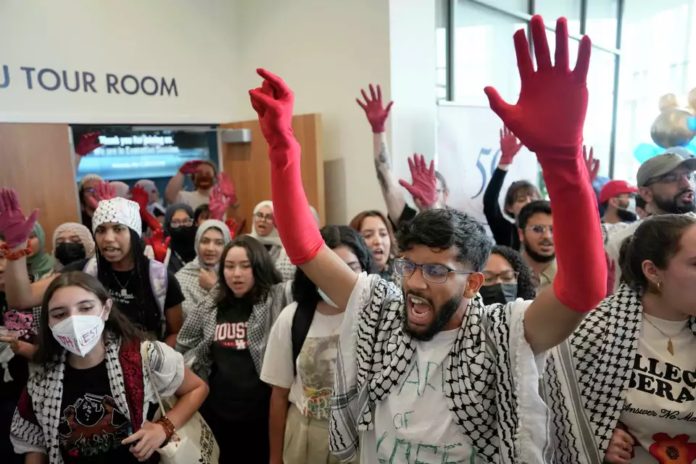Written by Dua Syed
“How does it feel to be complicit in genocide?”: Students pressure UH board to divest from death
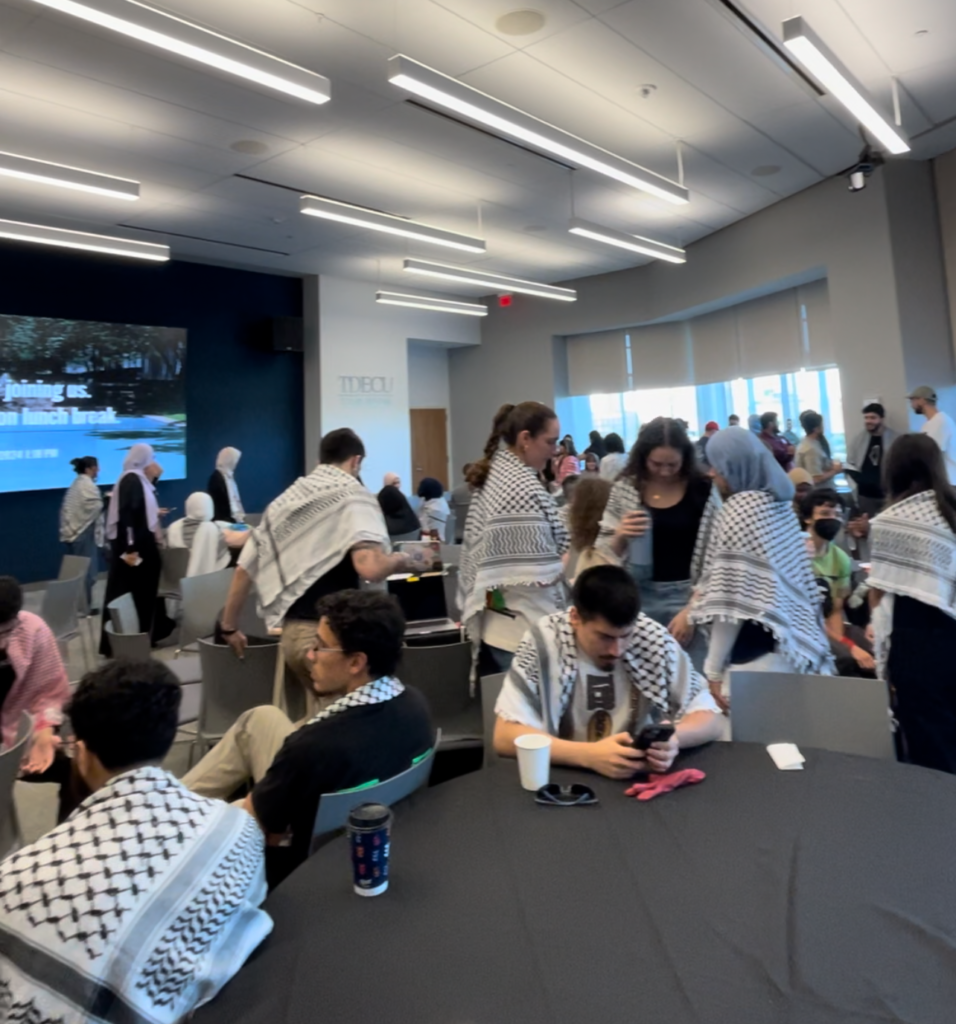
(Protesters attending board of regents meeting)
On May 15th, 2024, over a hundred students and members of the community flooded the UH System Board of Regents Meeting at UH-Downtown to demand divestment from companies profiting from the ongoing genocide in Gaza. Not allowed into the meeting room, we sat in an overflow room instead, which was still not sufficient to accommodate us all. Officers were present throughout the floor, even in the hallways leading to the restroom. Individuals from various organizations, backgrounds, and ages donned keffiyehs in solidarity, sitting through hours of logistical proceedings with nothing but unrelenting patience.
Just two weeks earlier, I sat in the Student Government Association meeting amid a similar scene. Dozens of students packed the room to pressure SGA to pass two resolutions calling for divestment (SGAR-61012) and condemning Governor Abbott’s executive order villainizing Pro-Palestinian protesters (SGAR-61011). In a meeting with one of the highest turnouts in SGA history, both resolutions passed unanimously. The voice of the student body rings loud and clear – but do the University administrators reflect its demands?
Since 2016, the University of Houston has invested over $7 million in weapons manufacturing and war profiteering companies such as Lockheed Martin, Boeing, Raytheon, Northrop Gruman, and more, not to mention the companies responsible for extracting resources from and surveilling Palestinians in occupied territory.
Nearly 3 hours into the meeting, it was time for dhuhr, Muslim noon prayers. In a powerful show of unity, worshippers stood together in jama’ah outside of the overflow room, side by side, hands folded or unfolded, to praise their Creator. Allahu akbar – God is the greatest. Onlookers watched, recording the bowing and rising of souls remembering what they were truly here for – submission to the One in whom we draw strength, in whom we entrust all of our affairs. Bowing to no one else but Him.
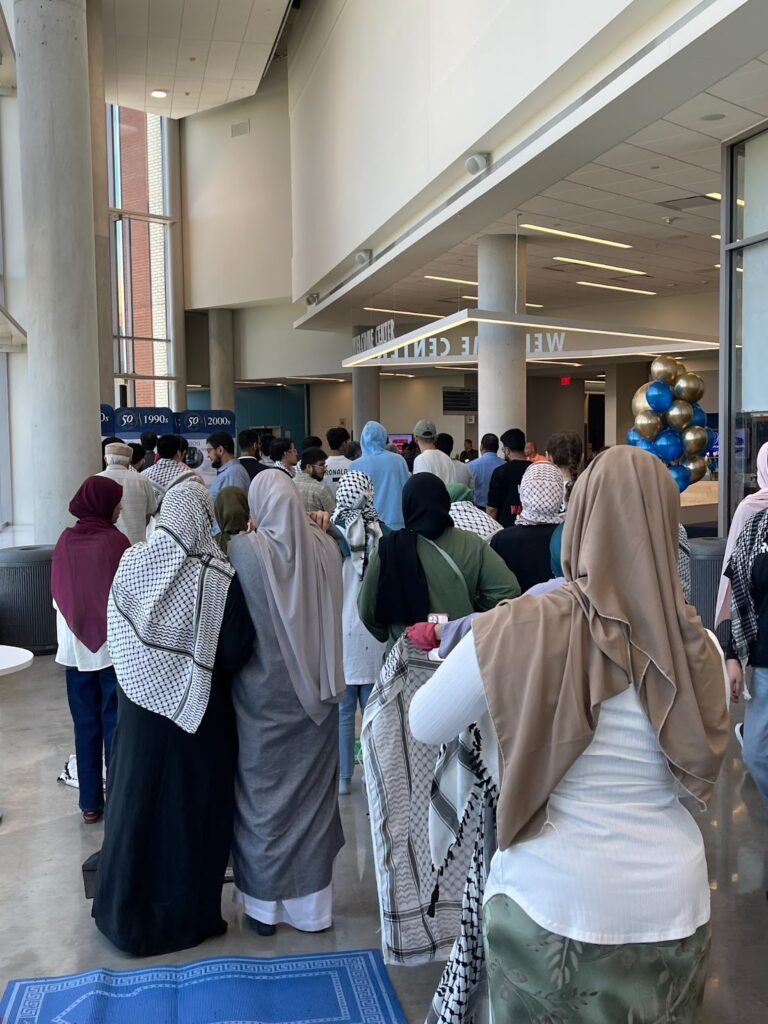
(Protesters gather for prayers outside the overflow room)
Shortly after, it was time for the students to speak. One by one, the speakers electrified the audience, revealing horrifying statistics such as how the death toll in Gaza of over 35,000 is equivalent to almost 93% of the UH undergraduate student body, sharply challenging Chairman Fertitta, Renu Khator, and the other affluent individuals on the Board.
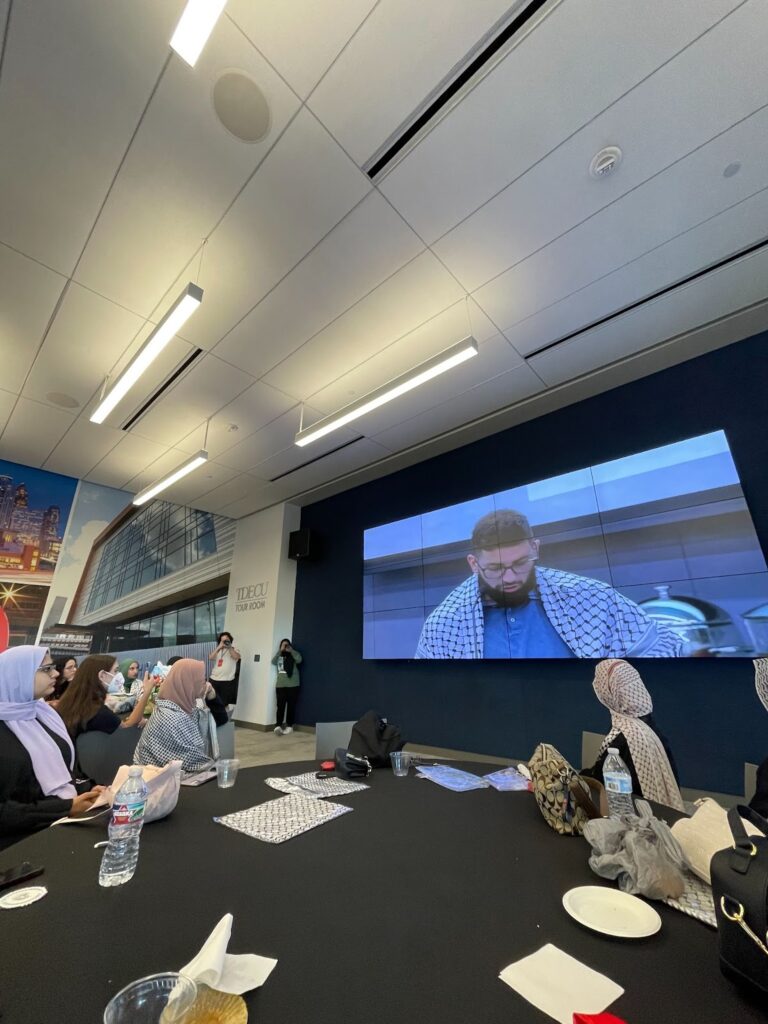
(Student speaker, Omar Kanaan)
“There is nothing apolitical about refusing to divest”, said Arkady de Castro, a freshman. De Castro called to light Israel’s crimes against humanity and scholasticide – its killing of scholars, students, scientists, educators, and destruction of universities, schools and hospitals. Belal Salama, a recent graduate, pointedly remarked how Dr. Agarwal told students at graduation “to leave a mark on this world,” asking, “Is this mark written in Palestinian blood?” Omar Kanaan questioned the “disturbing trend” of the University censoring and cutting out footage of students holding up Palestinian flags or solidarity messages from graduation live streams and of its implications on the school’s claims of freedom of speech.
Palestinian-American student Laila Hammad, her grandfather among those expelled by the IDF amid ethnic cleansing, shared heartbreaking details of how the momentous occasion of her graduation was overshadowed with emptiness with over 60 members of her family having been killed in Gaza, including a 6 month old. Israel had stolen her family’s homes, possessions and lives, even her “right to speak about [her] own pain”. She then commented on how the solidarity encampments have been a source of hope amid the chaos of displacement for her remaining family, her cousin stating that “I feel that I want to cry seeing these students fighting for us.”
“Dismantling systems of oppression globally is largely credited to grassroots movement getting their institutions to divest”, remarked Reem Abdelaziz about the pivotal role that educational institutions play in driving change, citing that UH was among the first universities in the south to divest from Apartheid South Africa.
“How does it feel to be complicit in genocide?” Gabrielle’s [last name unknown] question weighed heavily upon the audience, along with the calls from faculty member Melanie Pang to treat the budget as a “moral document of our priorities.” The speakers assured that students will return every year to make the same demands. Regardless of outcomes, it is clear that such demonstrations and organized gatherings are ways for those fighting for the cause to stay sane, revitalized and connected to their community.
At the conclusion of the meeting, more than 100 protestors stood with red gloves on as the board members left, chanting “UH your hands are red, 40,000 people are dead”.

(Image source: Melissa Philip, The Houston Chronicle, With semester over, calls for divestment continue at University of Houston System board meeting)
